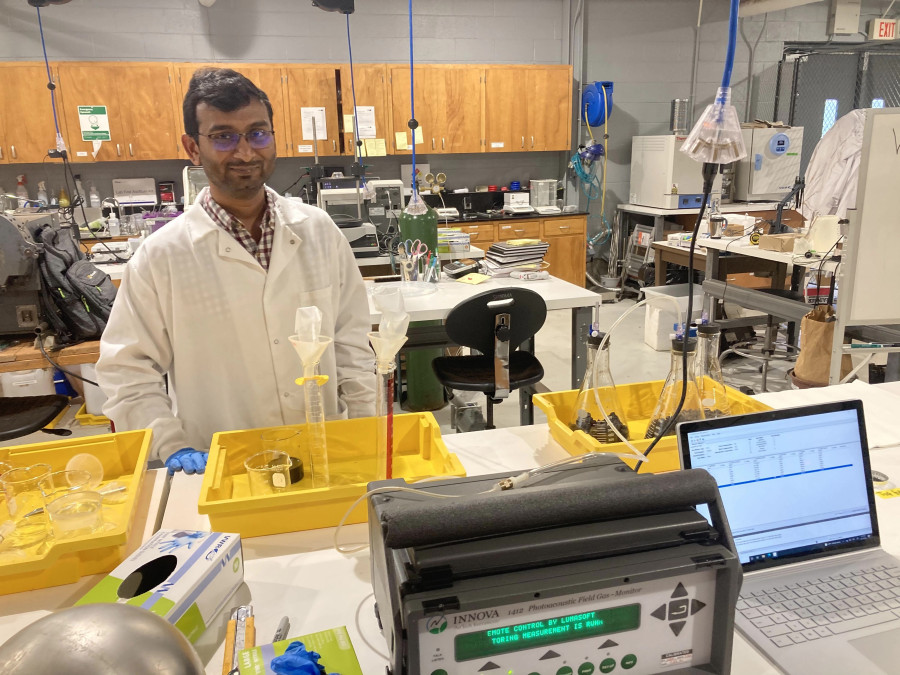In today's fast-paced corporate world, the success of a company often hinges on its ability to foster strong teamwork and collaboration. Businesses that excel in building cohesive, well-functioning teams tend to perform better, innovate more, and develop a healthier work culture. Team building is a critical component of this process, influencing everything from employee morale to organizational productivity. As companies continue to recognize the value of effective team dynamics, the demand for engaging and impactful team-building activities has soared.
Whether through traditional methods or more modern approaches like adventure-based challenges, corporate team building can turn a mission uncrossable into a shared victory, strengthening bonds and creating lasting connections among employees. But why is team building so essential, and how can businesses harness its power to drive success?
The Impact of Team Building on Company Culture
One of the most significant benefits of team building is its ability to shape and reinforce company culture. In any organization, culture plays a crucial role in determining how employees interact with each other, how they perceive their roles, and how committed they are to the company’s goals. A positive and supportive company culture is often the result of well-designed team-building initiatives that encourage collaboration, trust, and open communication.
When employees feel connected to their colleagues, they are more likely to be engaged in their work. A well-established culture of teamwork can improve job satisfaction, reduce turnover rates, and create an environment where employees are eager to contribute their best ideas and efforts. This, in turn, has a direct impact on the overall performance and productivity of the organization.
Strengthening Communication Within Teams
Effective communication is the backbone of any successful team. Without clear, open lines of communication, misunderstandings can arise, and collaboration can break down. Team-building activities help to break down communication barriers by encouraging employees to engage in conversations in a non-work environment. These activities often require participants to solve problems together, which fosters natural communication and helps team members learn to express their thoughts and ideas more clearly.
Moreover, team-building exercises often involve individuals from different departments or areas of expertise. This cross-functional interaction encourages employees to listen to others' perspectives, ask questions, and collaborate with people they might not usually interact with. As a result, team building can lead to better communication across the organization, reducing silos and improving overall operational efficiency.
Building Trust Among Employees
Trust is a foundational element of any high-performing team. Without trust, collaboration becomes difficult, and team members are less likely to share their ideas, take risks, or offer constructive feedback. Team-building activities are designed to foster trust by creating opportunities for employees to interact in a relaxed, non-threatening environment. Through games, challenges, and problem-solving tasks, employees learn to rely on one another, develop mutual respect, and build confidence in each other’s abilities.
Trust is particularly important in leadership development, as managers who have earned the trust of their teams can inspire loyalty and encourage their employees to go above and beyond. By focusing on trust-building activities in team-building programs, companies can create a work environment where employees feel safe to collaborate, experiment, and innovate.
Enhancing Problem-Solving Skills
Team-building exercises are often structured to simulate real-world challenges, requiring participants to work together to solve complex problems. This process encourages employees to think critically, pool their expertise, and develop creative solutions. As employees engage in these problem-solving scenarios, they practice skills such as critical thinking, decision-making, and conflict resolution.
These activities also help to build a sense of shared responsibility. When teams face a challenging task, everyone is responsible for contributing to the solution, which fosters accountability and a stronger sense of ownership. By sharpening their problem-solving skills through team-building activities, employees are better equipped to handle complex challenges in their day-to-day work.
Promoting Employee Engagement and Motivation
Employee engagement is a key factor in driving productivity and reducing turnover. Engaged employees are more committed to their work and are more likely to go the extra mile to achieve the company’s objectives. Team building can significantly boost engagement by creating a sense of belonging and camaraderie among employees.
When employees participate in team-building activities, they gain a greater appreciation for their colleagues' skills and strengths, which can enhance their sense of teamwork. As a result, employees are more motivated to support one another and contribute to the company’s success. The positive experiences employees have during team-building exercises also translate into a greater commitment to their roles, making them more invested in achieving the company’s goals.
Developing Leadership Skills
Strong leadership is essential for the long-term success of any organization. Team-building activities not only help employees develop their communication, problem-solving, and trust-building skills but also provide an opportunity for leadership development. During team-building exercises, participants often take turns leading tasks or challenges, allowing them to practice leadership skills in a low-pressure environment.
These experiences can help identify emerging leaders within the organization, allowing managers to provide targeted mentorship and growth opportunities. Moreover, team-building activities encourage leaders to step outside their traditional roles, collaborate with their peers, and strengthen their relationships with employees. By developing leadership skills in a supportive team-building environment, employees are better prepared to take on more significant responsibilities within the organization.
Reducing Stress and Improving Mental Health
The pressures of work can often lead to stress, burnout, and other mental health issues. Team-building activities provide employees with an opportunity to step away from the daily grind and engage in activities that promote relaxation and well-being. Whether it’s through physical activities, games, or creative exercises, team-building events can help alleviate stress and improve overall mental health.
By offering a break from work and providing opportunities for fun and relaxation, team building promotes a more balanced approach to work. Employees who are less stressed and more relaxed are better able to focus, think creatively, and contribute effectively to their teams. A healthy, stress-free work environment is essential for both individual and organizational success.
Creating Long-Lasting Connections and Friendships
At the core of successful team building is the opportunity to forge strong personal connections. When employees spend time together outside of the workplace and engage in collaborative challenges, they develop friendships that extend beyond work-related tasks. These relationships enhance teamwork by creating a sense of loyalty and mutual respect among colleagues.
The bonds formed during team-building activities often lead to better cooperation and collaboration in the workplace. Employees who share personal connections are more likely to communicate openly, support one another, and work effectively together, which translates into better overall performance.
Choosing the Right Team-Building Activities
Not all team-building activities are created equal. To be effective, team-building exercises should be tailored to the specific needs and goals of the organization. Some companies may benefit from outdoor adventure-based activities that promote teamwork and problem-solving in challenging environments, while others may prefer activities that focus on communication or creative thinking.
It’s important to consider the personalities, interests, and goals of the employees when selecting team-building activities. A well-planned team-building event should be engaging, inclusive, and aligned with the company’s objectives. Ultimately, the right team-building activity will help employees develop the skills they need to succeed both individually and as part of a team.
Conclusion: The Power of Team Building in Achieving Corporate Success
In conclusion, team building plays a vital role in the overall success of a company. By fostering better communication, trust, problem-solving skills, and employee engagement, team-building activities contribute to a healthier and more productive work environment. The impact of these activities extends beyond just the workplace, helping employees build lasting relationships, improve their mental health, and develop leadership skills that are crucial for long-term success.
As organizations continue to prioritize team building, they are investing not only in the success of their teams but also in the growth and development of their employees. In today’s competitive business world, companies that excel in creating strong, collaborative teams are the ones that will thrive and achieve lasting success.









